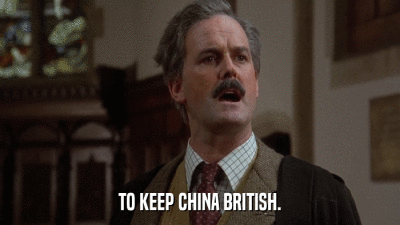But Britain couldn't allow Germany to compete for Third World colonies.

Posted on 09/01/2024 9:07:12 AM PDT by hardspunned
The assassination of Austro-Hungarian Archduke Franz Ferdinand by Bosnian Serb Gavrilo Princip in late June 1914 had one of the strongest ripple effects in modern history, setting off a series of war declarations across Europe and plunging the world into one of its deadliest conflicts.
World War I, however, didn’t officially begin until a month after Ferdinand’s assassination, and though tensions were high, the fight wasn’t inevitable, according to Ronald Spector, professor of history and international affairs.
George Washington Today sat down with Dr. Spector to discuss the assassination, the path to war and the new Europe it created.
Q: What was the mood in Europe in the summer of 1914, right around the time of the assassination? A: At the time, things actually seemed to be getting better. The Moroccan Crisis had been settled, the French and Germans had concluded an agreement about the Rhine River, and at the time of the assassination the German Navy was hosting the British Navy at Kiel Week, which is a huge bash with yacht and boat races. Of course, there were certain structural causes present, including the rise of nationalism in the Balkans, the alliance systems and the long-term arms race in naval and land weapons. But these things were in the background. It didn’t seem, in the summer of 1914, that there was much worry about a global war. The French and British newspapers, even for several weeks after the assassination, referred to it as “the Balkan crisis.” They didn’t think this would be a worldwide conflict.
(Excerpt) Read more at gwtoday.gwu.edu ...
But Britain couldn't allow Germany to compete for Third World colonies.

I find the phenomenon interesting because the United States caught a case of it right after WW2.
The national anthem of Germany was „Hail to thee in victor‘s crown“, just as America‘s was „My country, t’is of Thee, sweet land of liberty“. The melody was the same 🙂
The Deutschlandlied didn’t become the national anthem until 1922, and „über alles“ was supposed that the whole country should be estimated as more than its constituent parts.
Of course, the enemy propaganda didn’t see it that way….
If not for The Freikorps, Germany may very well have gone Bolshevik.
Unfortunately The Freikorps became a big part of what was to become The National Socialist German Workers Party.
That’s why Napoleon continues to fascinate. He is a giant, yet neither wholly saint or villain. He is a classic Greek tragic figure, achieving much, for good and evil, until defeated by hubris.
Absolutely.
Pleasa also see my answer to Mr. Rockingham 🙂
They don’t include that verse in the anthem today.
Napoleon. And Napoleon III.
Kind of like Robespierre.
And Napoleon XIV!
Indeed. It was a dreadful tragedy, in more than one respect.
May the innocent victims rest in perfect peace🙏🏻
Amen.
Sarajevo was in Austria-Hungary.
What would President Trump do if told he mustn't enter any blue states. He'd say, "An American President has a right to go anywhere in America. I will not surrender to terrorists.
Yes, to avoid any misunderstanding.
By the way, only the third stanza is sung nowadays. Few people know that it was banned during the Nazi years.
„Unity and righteousness and freedom for the German fatherland“?
With the Nazis, definitely not 🙁
Bismark’s strategy and goals for Germany were defensive after 1871, with Germany to become a peaceful status quo power. On accession, Kaiser Wilhelm though favored a policy of aggressive colonial acquisitions and building Germany a large and potent army and navy that would assure her primacy in Europe against France and Britain, one way or another. Wilhelm soon clashed with and dropped Bismark, adopting a program that set Germany toward WW I.
No, the Krauts, Limeys, and Russtards, their leaders being inbred uncle-cousins, should have allied against France.
His invasion of Russia was his second, and biggest, mistake.
Yes, that was exactly the situation in which the Crown Prince had found himself.
And he was probably quite popular with the locals in Sarajevo: after the murder, the killers would almost have been lynched by the livid crowd, as the police report stated.
Well, the Dutch, Spanish and Portuguese also had some nice picks. Even little Belgium managed to grab the Congo.
Not much left for Germany and Italy, largely because they didn't become nations until the latter 1800s.
By the way, while most historians refer to the period between WW I and WW II as "the interwar years," in Germany, that era is called "Halftime." (Badda-boom!)
There were other groups more bent on expansion.
Wilhelm II. was not in favor, but, as you know all too well, history is written by the victors. Always has been, always will be. The historical narrative has to sound good.
Disclaimer: Opinions posted on Free Republic are those of the individual posters and do not necessarily represent the opinion of Free Republic or its management. All materials posted herein are protected by copyright law and the exemption for fair use of copyrighted works.